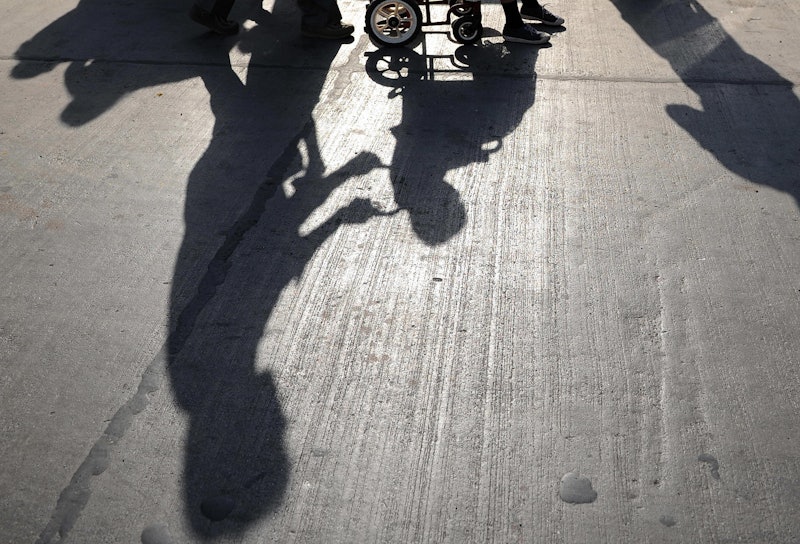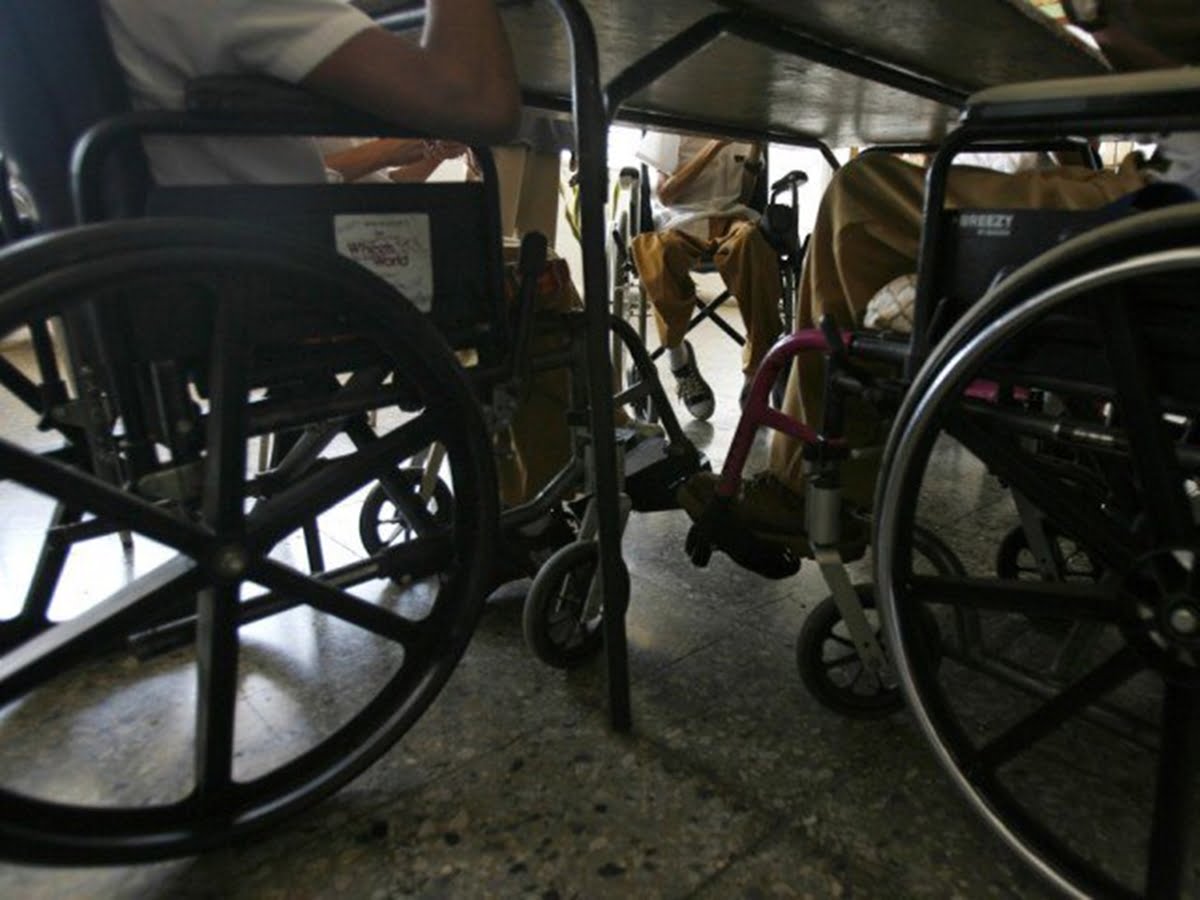Posted by Kavya Mukhija
As I gradually came to terms with the news of the COVID-19 pandemic spreading far and wide, the intensity of the situation, especially from the perspective of persons with disabilities, and our access to health facilities among other things, began seeping within me. There were already so many layers to my existence, ranging from my disability to the widespread inaccessibility. Now, with the COVID-19 too amongst us, my survival meant navigating another layer of challenges brought about by this fatal disease and its implications for my health.
I remember this realisation hit home some time after listening to PM Modi’s 8 pm address about the three-week-long lockdown on March 24 and feeling a little contentment making a home within me. Having been at the receiving end of care most of the times, being at home with my parents and sister felt safe. Hence, contrary to everyone else, I was happy about all of us being at home 24×7.
For persons with disabilities, frequent travels to hospitals for umpteen checkups has almost transformed hospitals into our second homes. However, given how hospitals and healthcare centres are majorly inaccessible, preventing disease and exercising caution became even more perilous in the prevailing times of the pandemic.
For persons with disabilities, frequent travels to hospitals for umpteen checkups has almost transformed hospitals into our second homes. However, given how hospitals and healthcare centres are majorly inaccessible, preventing disease and exercising caution became even more perilous in the prevailing times of the pandemic.
In an attempt to dig deeper into the impact of the debilitating COVID-19 pandemic on the health and hygiene of women with disabilities, Rising Flame and SightSavers reached out to 82 women with disabilities in various states across the country. In their report ’Neglected And Forgotten‘, a majority of women with disabilities shared their fears, anxiety and worry about them or their family members contracting the virus. Day-to-day activities, such as buying groceries, have become potentially threatening and made them powerless.
Also read: Rising Flame’s Nidhi Goyal On Womxn With Disability, The RPWD Act, COVID-19 & More

For a 42-year-old woman living with scleroderma who is also a wheelchair-user, getting blood tests done has put her health in question, said the report. Going to hospitals increases the risk of contracting the virus and so does asking for blood samples to be collected from home. In the end, the looming question remains – “In case of a medical emergency, how can I contact my doctor and get the required help?”
Being the largest minority in the world, the needs of persons with disabilities have been pushed further down as hospitals are only focused on treating patients on ‘priority’ basis. While, on one hand, the pandemic has taken a toll on the financial expenses of PwDs, coercing them to turn to costly treatment at private hospitals, lack of conveyance to travel to hospitals in cities, and absence of female doctors has further aggravated the situation at hand. “The doctor in our village has switched off his phone. When we go to him personally, he refuses to extend medical assistance to us,” the report quoted a 38-year-old wheelchair-using labourer from Bikaner, who has to spend thousands of rupees only on transport services to go to the hospital in the city 30 km away from her village.
With numerous initiatives, such as providing sanitary pads to school-going girls, the longstanding silence on menstrual hygiene was gradually broken. Later, as people became aware of the benefits of using sanitary pads, menstrual hygiene saw the light of the day. Hundreds of girls had access to sanitary pads only through their schools. Now, with the schools suddenly shut and individuals locked at homes, their access to menstrual hygiene has been drastically affected.
The COVID-19 global pandemic has also levelled up the dependence of PwDs on caregivers, guardians, friends, relatives and even local chemists. A resident of Raigad with a locomotor disability reported that getting sanitary napkins required her to travel 10 kilometres. Hence, she later had to ask her mother to get them for her. A 34-year-old Bangalore resident with low vision also had a similar experience. She unveiled that with the local shops closed, she was a little hesitant to ask her father and brother, with whom she lives, to get sanitary napkins for her. However, later she resorted to ordering them online. These stories in the report show how women with disabilities are affected specifically.
While most in cities have got the women covered, local shops in rural areas have already run out of supplies. Two women from Mahasamund in Chhattisgarh reveal that they have gone back to using, washing, and reusing pieces of old cloth in place of pads, putting their health adversely at risk.
While most in cities have got the women covered, local shops in rural areas have already run out of supplies. Two women from Mahasamund in Chhattisgarh reveal that they have gone back to using, washing, and reusing pieces of old cloth in place of pads, putting their health adversely at risk.
I remember as the news of the lockdown broke, my sister looped a bottle of hand sanitizer on my wheelchair’s armrest so that I’d not have to rush to the washroom again and again for washing my hands. While I had access to hand sanitizer almost immediately, there are thousands of people who neither have access to sanitizer nor water. In areas grappling with water scarcity, ensuring that one’s basic health needs are met is far from easy. One participant in the research who belonged to a village in Odisha said that she was “forced to purchase water” due to its limited supply in her village.
Apart from the lack of affordability of various commodities, persons with disabilities are also the consumers of umpteen other necessities ranging from assistive devices, batteries for wheelchairs, diapers for adults with disabilities and gloves for patients of arthritis. With shops and centres shut indefinitely, persons with disabilities are left with no choice but to wait for stores to open up again.
The pandemic has not only brought the huge costs of survival to the surface but has also brought the indigenous issue of inaccessibility under the spotlight. Persons with disabilities relying on care support are left with no choice but to get help to navigate daily life such as while washing their hands in washbasins that are higher their reach. At times, they also have to be lifted which further puts a question on the numerous awareness campaigns, highlighting the importance of minimising physical contact, making rounds.
Talking of deaf and hard of hearing individuals, the coronavirus pandemic has affected their communication with their close ones. As wearing masks becomes the new safety step, individuals relying on lip-reading to communicate have conveniently been left out of an inclusive framework. A 35-year-old woman from Mumbai who is hard of hearing expressed her fear of not being able to talk to the doctors and nurses with PPE kits further obstructing her communication, if she were to be hospitalised. The inaccessible quarantine centres also make it imperative for coronavirus patients with disabilities to depend on their fellow patients to navigate the premises of the centres, as expressed by a blind woman from Mumbai who had contracted the virus.
In this world run by ableism, the coronavirus pandemic has made it even more urgent to redress the existing intersectionality of health, hygiene and disability. It has made the already vulnerable, more vulnerable by almost putting their existence at stake. It has ripped apart all possibilities of independence for persons with disabilities by forcing them to get help. The idea of self-isolation, though is preventive, has emboldened the ableist ideology existing in our society.
While the reality on the ground is scary and grim, empathy, awareness, and more importantly, reworking preventive measures keeping in mind persons with disabilities, will prove to be fruitful in ensuring that the needs of all sections of society are given due importance.
Also read: The Proposed Amendment To The Disabilities Act Shows The Apathy Of The State
The report also has a few recommendations on making healthcare inclusive and accessible, which included:
- Persons with disabilities should be able to access, without discrimination, the same level of healthcare as persons without disabilities are able to access. Persons with disabilities should be able to access emergency healthcare services not related to COVID-19 and access to healthcare should not be hampered by the lack of availability of public transport services.
- During quarantine or hospitalisation due to COVID-19, persons with disabilities must have access to essential support services, personal assistance, and physical and communication, with due consideration to the specific requirements of women and girls with disabilities who may be under treatment.
- Medical and para medical staff, particularly those frontlines, must receive basic training and guidelines to work with and support persons with disabilities and on the requirements of women and girls with disabilities. Video modules to be developed in consultation with civil society that they can watch on their own would be ideal as organising formal trainings are not possible at this point.
True to her name, Kavya is poetry in making. She is a student of Psychology, a writer, and a calligraphy artist. Passionate about Disability Rights, Kavya finds humour to be a useful tool in imparting awareness about disability. Kavya also loves to travel and explore new cuisines. She was an I Can Lead (2019-2020) fellow at Rising Flame. She can be found on Instagram, Facebook, Twitter and LinkedIn.
Rising Flame and Sightsavers conducted and published a study titled Neglected & Forgotten: Women with Disabilities during the Covid Crisis in India in July 2020. 82 women with disabilities participated in its survey which focused on aspects such as Access, Health, Emotional Well-Being and Social Protection, among others. This August, Feminism In India will do a deep-delve into the aforementioned themes.
Featured Image Source: TheWire.in
About the author(s)
Rising Flame is a nonprofit organisation based in India, working for recognition, protection, and promotion of human rights of People with Disabilities, particularly women and youth with disabilities. Rising Flame’s vision is to build an inclusive world in which diverse bodies, minds, and voices thrive with dignity; live free of discrimination, abuse, and violence; and enjoy equal opportunities and access. Since its establishment in 2017 as a self-led organisation, it aims to enable persons with disabilities standing at multiple intersections to have a voice, have a space, be heard and lead from the front. It is the Recipient for the National Award for Empowerment of Persons with Disabilities 2019.




